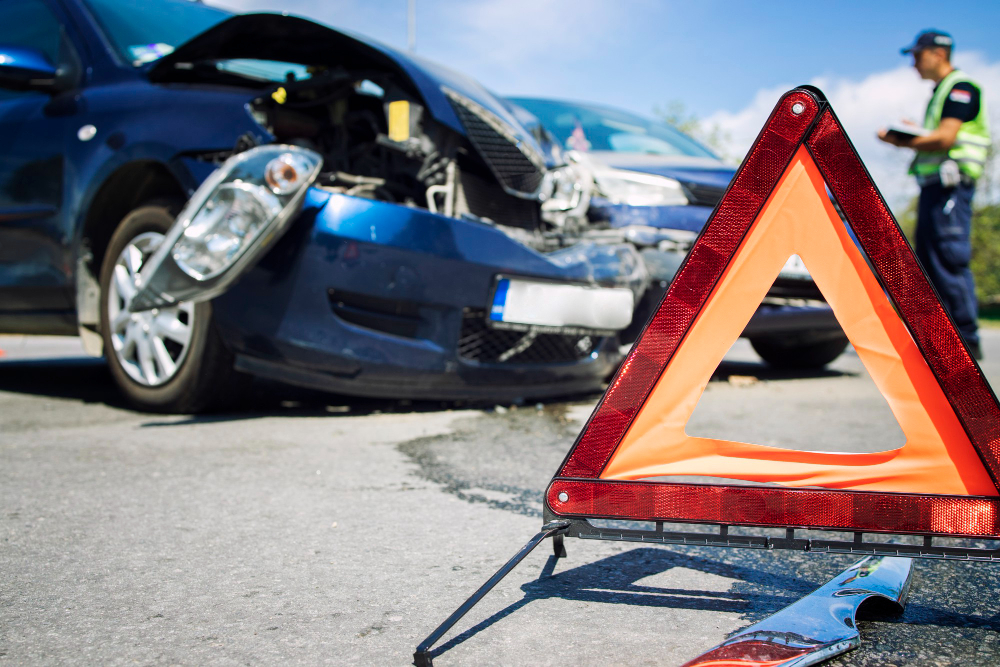April 13, 2023
If you take the necessary precautions and drive responsibly, you greatly reduce your risk of encountering trouble on the road. However, accidents can still occur due to a wide range of circumstances. If you find yourself in one, it’s important to take the right steps. Remaining rational and focusing on the following tasks can protect you physically, emotionally, and financially.
Check for Injuries
Not all car accidents cause injuries, but your priority after an accident should be to evaluate whether you or anyone in the vehicle is hurt. If you or your passengers have serious injuries, it’s best not to move but to wait for first responders to arrive instead.
Get to Safety
If possible, pull the vehicle to the side of the road. If you are able, exit the car and get to the sidewalk. If the car is too damaged to drive safely, evacuate the vehicle and leave it where it is.
Call the Authorities and Wait for Help
Even if you are in a minor accident, you should call the police. The responding officer will fill out an accident report. If no one is hurt, call the local non-emergency number. If there are serious injuries, call 911 immediately. Always stay on the scene and wait for help to arrive, even if you aren’t hurt and there is minimal damage to the vehicle. Turn on the vehicle’s hazard lights, so other cars become aware of the accident.
Exchange Information with the Other Driver
Once you have alerted the authorities, speak with other motorists involved in the accident and trade contact and insurance information. You will need to provide your full name and phone number, your auto insurance policy number and the name of the company, and your driver’s license number. It’s important that you remain calm during this interaction. You may feel angry or frustrated, but avoid the temptation to assign blame or lose your temper.
Record What Happened
If you are physically able, you should document the details of the accident. Write down exactly what happened, who was injured and to what extent, and whether there was damage to the vehicle. Take photos of your vehicle and any other vehicles involved. Talk to witnesses and get their contact information.
Report the Incident to Your Insurance Company
You’ll also want to inform your insurance agent of the accident. Do this as soon afterward as possible. Be as descriptive as you can in detailing what occurred. Describe the damage to the vehicle and any injuries that people suffered. Listen carefully to your agent and follow the instructions you receive.
Don’t Admit Fault
No matter what, never admit fault in an accident. You should be honest about what happened but stop short of saying things like, “Sorry, it’s my fault.” Such statements could be used against you by insurance companies and attorneys.
Don’t Leave the Scene
Never leave the scene of an accident, especially if there are injuries and serious damage to the vehicles. In many states, it is a crime to flee the scene of a car accident. Responding police officers will want to take statements from everyone involved as well as witnesses.
Don’t Put off Getting Medical Help
Too many car accident victims dismiss the need to seek medical attention. If there are serious injuries, an ambulance should transport you to the emergency room right away. However, for moderate or minor injuries, you will likely get treatment on the scene. You should then visit an urgent care center or your primary care physician as soon as possible to assess the injuries.
Even if you feel fine after an accident, it’s wise to see your doctor. Some symptoms can show up days or even weeks after the incident.
The Bottom Line
Like anyone, you hope never to deal with the effects of a car accident. However, it’s important to be aware of these guidelines so you can be prepared. For more direction on what you should do and avoid after an accident, contact the professionals at Friedman Law Office by calling 1-800-876-1093.

